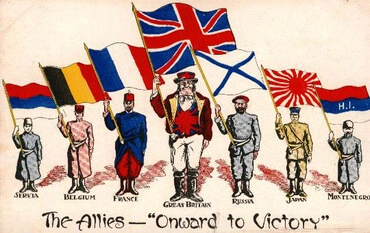1
民はモーセが山を下ることのおそいのを見て、アロンのもとに集まって彼に言った、「さあ、わたしたちに先立って行く神を、わたしたちのために造ってください。わたしたちをエジプトの国から導きのぼった人、あのモーセはどうなったのかわからないからです」。
2
アロンは彼らに言った、「あなたがたの妻、むすこ、娘らの金の耳輪をはずしてわたしに持ってきなさい」。
3
そこで民は皆その金の耳輪をはずしてアロンのもとに持ってきた。
4
アロンがこれを彼らの手から受け取り、工具で型を造り、鋳て子牛としたので、彼らは言った、「イスラエルよ、これはあなたをエジプトの国から導きのぼったあなたの神である」。
5
アロンはこれを見て、その前に祭壇を築いた。そしてアロンは布告して言った、「あすは主の祭である」。
6
そこで人々はあくる朝早く起きて燔祭をささげ、酬恩祭を供えた。民は座して食い飲みし、立って戯れた。
7
主はモーセに言われた、「急いで下りなさい。あなたがエジプトの国から導きのぼったあなたの民は悪いことをした。
8
彼らは早くもわたしが命じた道を離れ、自分のために鋳物の子牛を造り、これを拝み、これに犠牲をささげて、『イスラエルよ、これはあなたをエジプトの国から導きのぼったあなたの神である』と言っている」。
9
主はまたモーセに言われた、「わたしはこの民を見た。これはかたくなな民である。
10
それで、わたしをとめるな。わたしの怒りは彼らにむかって燃え、彼らを滅ぼしつくすであろう。しかし、わたしはあなたを大いなる国民とするであろう」。
11
モーセはその神、主をなだめて言った、「主よ、大いなる力と強き手をもって、エジプトの国から導き出されたあなたの民にむかって、なぜあなたの怒りが燃えるのでしょうか。
12
どうしてエジプトびとに『彼は悪意をもって彼らを導き出し、彼らを山地で殺し、地の面から断ち滅ぼすのだ』と言わせてよいでしょうか。どうかあなたの激しい怒りをやめ、あなたの民に下そうとされるこの災を思い直し、
13
あなたのしもべアブラハム、イサク、イスラエルに、あなたが御自身をさして誓い、『わたしは天の星のように、あなたがたの子孫を増し、わたしが約束したこの地を皆あなたがたの子孫に与えて、長くこれを所有させるであろう』と彼らに仰せられたことを覚えてください」。
14
それで、主はその民に下すと言われた災について思い直された。
15
モーセは身を転じて山を下った。彼の手には、かの二枚のあかしの板があった。板はその両面に文字があった。すなわち、この面にも、かの面にも文字があった。
16
その板は神の作、その文字は神の文字であって、板に彫ったものである。
17
ヨシュアは民の呼ばわる声を聞いて、モーセに言った、「宿営の中に戦いの声がします」。
18
しかし、モーセは言った、「勝どきの声でなく、敗北の叫び声でもない。わたしの聞くのは歌の声である」。
19
モーセが宿営に近づくと、子牛と踊りとを見たので、彼は怒りに燃え、手からかの板を投げうち、これを山のふもとで砕いた。
20
また彼らが造った子牛を取って火に焼き、こなごなに砕き、これを水の上にまいて、イスラエルの人々に飲ませた。
21
モーセはアロンに言った、「この民があなたに何をしたので、あなたは彼らに大いなる罪を犯させたのですか」。
22
アロンは言った、「わが主よ、激しく怒らないでください。この民の悪いのは、あなたがごぞんじです。
23
彼らはわたしに言いました、『わたしたちに先立って行く神を、わたしたちのために造ってください。わたしたちをエジプトの国から導きのぼった人、あのモーセは、どうなったのかわからないからです』。
24
そこでわたしは『だれでも、金を持っている者は、それを取りはずしなさい』と彼らに言いました。彼らがそれをわたしに渡したので、わたしがこれを火に投げ入れると、この子牛が出てきたのです」。
25
モーセは民がほしいままにふるまったのを見た。アロンは彼らがほしいままにふるまうに任せ、敵の中に物笑いとなったからである。
26
モーセは宿営の門に立って言った、「すべて主につく者はわたしのもとにきなさい」。レビの子たちはみな彼のもとに集まった。
27
そこでモーセは彼らに言った、「イスラエルの神、主はこう言われる、『あなたがたは、おのおの腰につるぎを帯び、宿営の中を門から門へ行き巡って、おのおのその兄弟、その友、その隣人を殺せ』」。
28
レビの子たちはモーセの言葉どおりにしたので、その日、民のうち、おおよそ三千人が倒れた。
29
そこで、モーセは言った、「あなたがたは、おのおのその子、その兄弟に逆らって、きょう、主に身をささげた。それで主は、きょう、あなたがたに祝福を与えられるであろう」。
30
あくる日、モーセは民に言った、「あなたがたは大いなる罪を犯した。それで今、わたしは主のもとに上って行く。あなたがたの罪を償うことが、できるかも知れない」。
31
モーセは主のもとに帰って、そして言った、「ああ、この民は大いなる罪を犯し、自分のために金の神を造りました。
32
今もしあなたが、彼らの罪をゆるされますならば――。しかし、もしかなわなければ、どうぞあなたが書きしるされたふみから、わたしの名を消し去ってください」。
33
主はモーセに言われた、「すべてわたしに罪を犯した者は、これをわたしのふみから消し去るであろう。
34
しかし、今あなたは行って、わたしがあなたに告げたところに民を導きなさい。見よ、わたしの使はあなたに先立って行くであろう。ただし刑罰の日に、わたしは彼らの罪を罰するであろう」。







